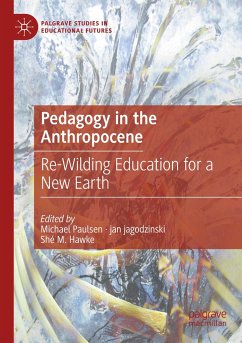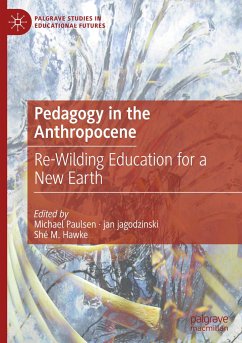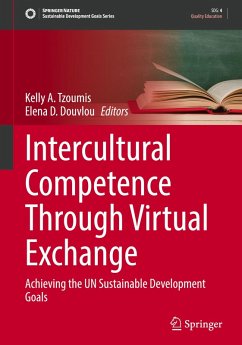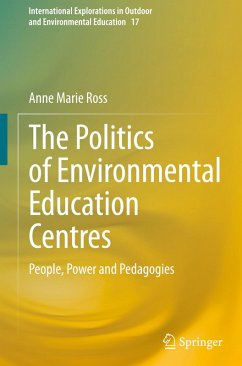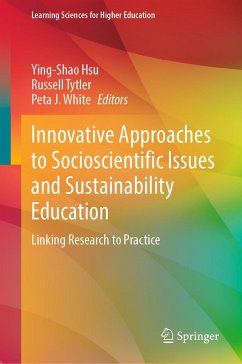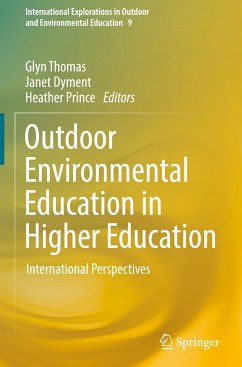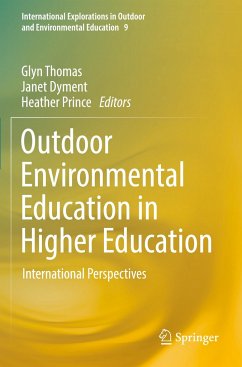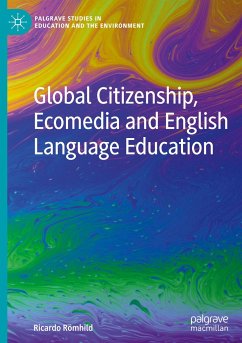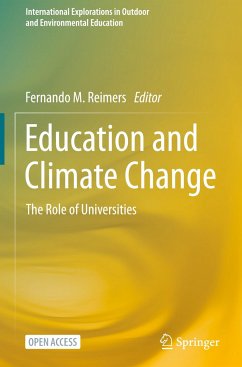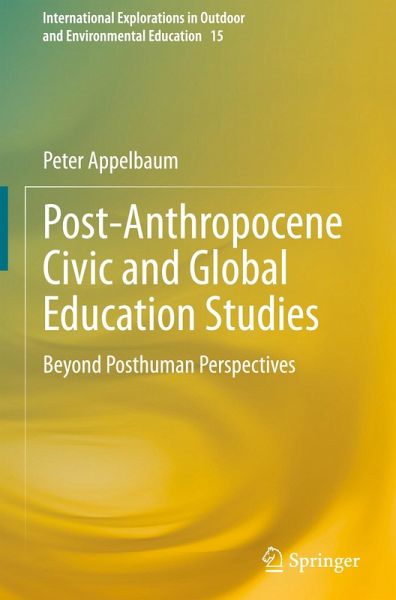
Post-Anthropocene Civic and Global Education Studies
Beyond Posthuman Perspectives

PAYBACK Punkte
49 °P sammeln!
This book explores community action within our more-than-human lifeworld, tackling post-Anthropocene challenges. It presents bold experiments, shifting from crisis study to asking, "How are we here?". It addresses key issues by moving beyond posthuman perspectives, integrating indigenous ways of being, resisting 'Doomer Culture', and rejecting blind 'Hopeism'. Part 1 focuses on Post-Anthropocene Pedagogies from an Education Studies perspective. Part 2 illustrates the power of these pedagogies, while Part 3 delves into literature on Post-Anthropocene Education. Part 4 illustrates the approach v...
This book explores community action within our more-than-human lifeworld, tackling post-Anthropocene challenges. It presents bold experiments, shifting from crisis study to asking, "How are we here?". It addresses key issues by moving beyond posthuman perspectives, integrating indigenous ways of being, resisting 'Doomer Culture', and rejecting blind 'Hopeism'. Part 1 focuses on Post-Anthropocene Pedagogies from an Education Studies perspective. Part 2 illustrates the power of these pedagogies, while Part 3 delves into literature on Post-Anthropocene Education. Part 4 illustrates the approach via case studies of teaching, the development of an NGO, and community art projects. The narrative emphasizes maintaining a two-way flow between human culture and nature, highlighting porous boundaries. It argues that mere knowledge won't cure or save the world. Instead, it advocates for leadership and civic engagement that enrich reconnection with place and stewardship.
The primary audience is within environmental education, sustainability studies, curriculum studies, post-human studies, sociology of education, and resource management as educational enterprise.
The primary audience is within environmental education, sustainability studies, curriculum studies, post-human studies, sociology of education, and resource management as educational enterprise.



